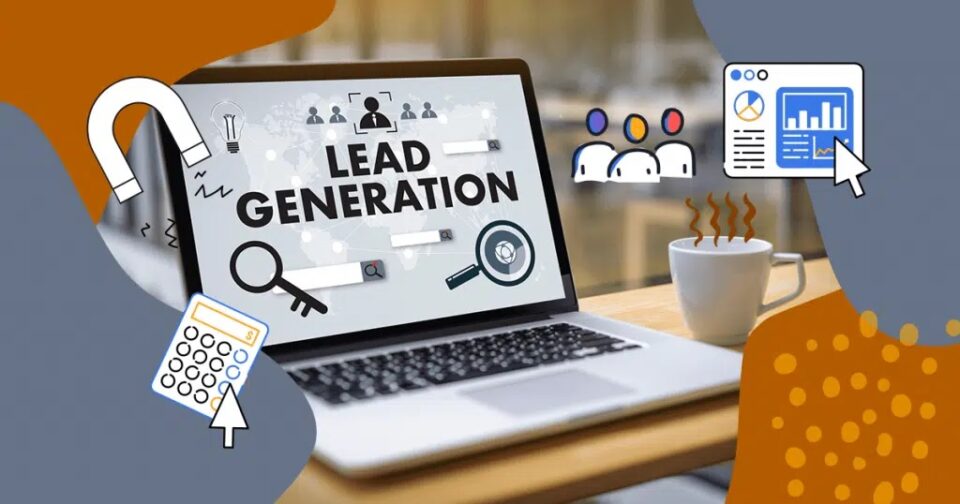Lead generation is a vital component of the marketing and sales process, acting as the first step in the journey from a prospective customer to a paying client. In today’s digital age, Artificial Intelligence (AI) has revolutionized the way businesses approach lead generation, offering innovative methods to identify, attract, and convert potential leads more effectively and efficiently than ever before. This article delves into the intricacies of lead generation using AI, exploring its mechanisms, benefits, and how it is transforming the way businesses interact with potential customers.
Understanding Lead Generation
Traditionally, lead generation involved manual tasks like cold-calling, attending trade shows, and buying lists of potential leads. These methods, while sometimes effective, were often hit-or-miss and required significant time and investment. The digital revolution brought about a change in this approach, with companies like LeadShark leveraging online tools and platforms to generate leads more effectively. However, the fundamental transformation in lead generation came with the advent of AI technologies, which LeadShark has adeptly integrated into its suite of services to offer unparalleled efficiency and precision in identifying potential customers.
The Role of AI in Lead Generation
AI is redefining lead generation by automating and personalizing the process. By analyzing vast amounts of data, AI algorithms can identify patterns and insights that human analysts might overlook. These insights can then be used to target potential leads more accurately. AI-driven lead generation tools use a variety of methods, including:
-
Predictive Analytics: AI models can predict potential leads’ behavior and preferences by analyzing past interactions and engagement across different platforms. This predictive capability allows companies to tailor their marketing efforts to the right audience, increasing the chances of conversion.
-
Content Optimization: AI tools can help create and deliver personalized content that resonates with the target audience. By analyzing data on what content types and topics are most engaging for different segments, businesses can optimize their content strategy to attract more qualified leads.
-
Chatbots and Virtual Assistants: These AI-powered tools can interact with website visitors in real time, answering queries, providing information, and even qualifying leads. They are available 24/7, offering a consistent level of service and capturing leads at any time of day.
-
Lead Scoring: AI can also automate the lead scoring process, quickly analyzing leads’ actions and engagement levels to prioritize those most likely to convert. This helps sales teams focus their efforts on the most promising prospects.
Benefits of Using AI for Lead Generation
The benefits of using AI for lead generation are numerous, significantly impacting both the efficiency and effectiveness of marketing and sales efforts:
-
Increased Efficiency: AI automates repetitive tasks involved in lead generation, such as data entry and lead qualification, freeing up human resources for more strategic activities.
-
Higher Conversion Rates: By enabling more targeted and personalized marketing efforts, AI helps increase the likelihood of converting potential leads into paying customers.
-
Cost Savings: AI-driven lead generation can be more cost-effective than traditional methods, as it reduces the need for significant marketing and sales teams and minimizes wasted efforts on unqualified leads.
-
Scalability: AI systems can handle vast amounts of data and interact with a large number of leads simultaneously, allowing businesses to scale their lead generation efforts without proportionately increasing their budgets.
Implementing AI in Lead Generation
Incorporating AI into your lead generation strategy requires careful planning and consideration. Businesses should start by identifying the most critical areas where AI can make a significant impact, such as lead scoring or content optimization. Choosing the right AI tools and platforms is crucial, as is ensuring that data privacy and security measures are in place. Training staff to work with AI-driven systems and constantly monitoring and tweaking AI algorithms based on performance data is also crucial for success.
The Future of Lead Generation with AI
As AI technology continues to evolve, its applications in lead generation will become even more sophisticated. We can expect to see AI tools that offer increasingly personalized and engaging experiences for potential leads, as well as more seamless integration with other marketing and sales technologies. The future of lead generation promises to be more data-driven, efficient, and effective, all thanks to the transformative power of AI.
Conclusion
Lead generation using AI represents a significant shift in how businesses identify and engage with potential customers. By harnessing the power of AI, companies can streamline their lead generation processes, achieve higher conversion rates, and ultimately, drive tremendous success in their marketing and sales efforts. As AI technologies become more advanced and accessible, embracing AI-driven lead generation will be essential for businesses looking to stay competitive in an increasingly digital marketplace.

